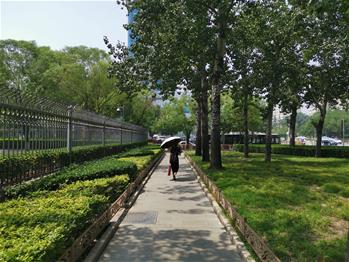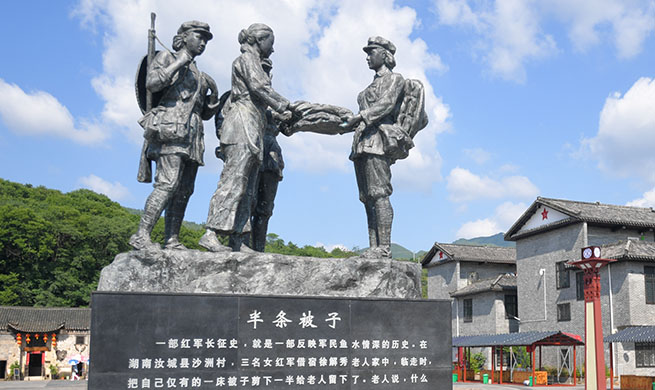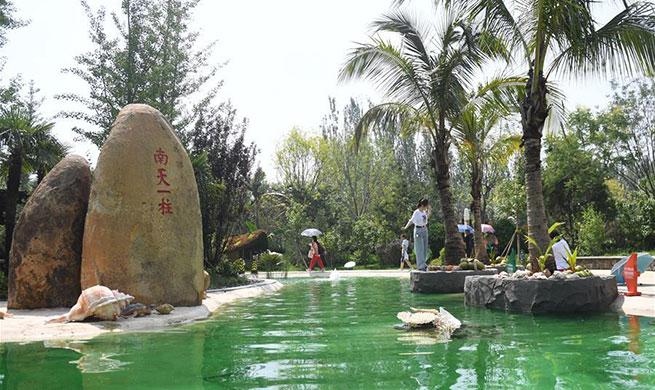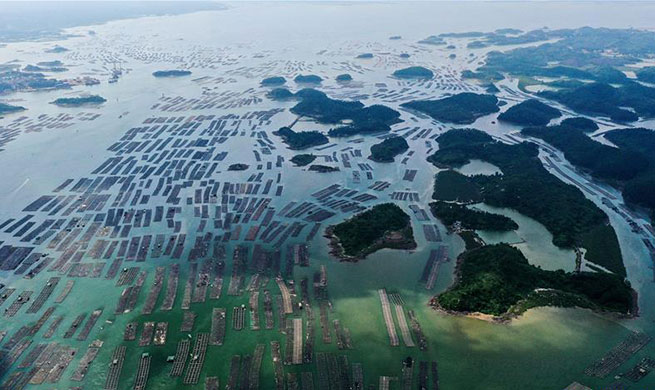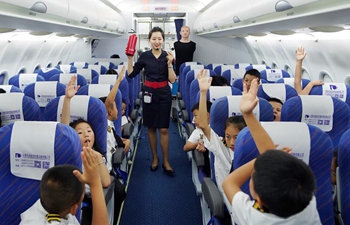by Yang Zhou, Wang Jin
BANGKOK, July 21 (Xinhua) -- Trade between China and the Association of Southeast Asian Nations (ASEAN) has great potential in growth to boost world economy, which faces challenges and uncertainties, said Wichai Kinchong Choi, senior vice president of Thailand's Kasikorn Bank.
ASEAN became China's second-largest trading partner in the first half of 2019, overtaking the United States for the first time since 1997.
China's customs data showed that China's trade with ASEAN rose 10.5 percent to 1.98 trillion yuan (288 billion U.S. dollars) in the first half of this year, as China's trade with the U.S. dropped 9 percent to 1.75 trillion yuan (254 billion U.S. dollars).
In a recent interview with Xinhua, Wichai said "since the 10 member states of ASEAN have abundant natural resources and a total population of some 700 million, the potential of trade and economic cooperation here is so huge."
"As neighbors, ASEAN and China have kept close relations and ASEAN market has become more and more important to China and vice versa," the senior vice president said.
He strongly believed that China as the second largest economy in the world and ASEAN, an emerging market of great potential, could cooperate closely to become a main driving force of the sustainable growth of world economy.
For the trade between China and his home country Thailand, Wichai is very positive as well.
According to statistics from the Ministry of Commerce of Thailand, trade between Thailand and China kept growing since 1998.
In 1998, Thailand exported goods of 1.766 billion U.S. dollars to China, while importing goods of 1.801 billion U.S. dollars from China.
Last year, Thailand exported goods of 30.316 billion U.S. dollars to China, which showed an 87.25-percent increase compared with 2008, while Thailand imported goods of 49.903 billion U.S. dollars from China, up 147.58 percent from that of 2008.
Wichai owed the continued growth of Thailand-China trade firstly to the mutual trust between Thai and Chinese governments which kept supporting trade, investment and other economic cooperation.
He said the second reason for the growth is the rapid development of China which offers a great market for Thailand's agricultural products.
The bank executive said Thai and Chinese economies are complementary to each other, especially under the Belt and Road Initiative proposed by China and Thailand 4.0 strategy and Eastern Economic Corridor project put forward by Thailand.
"More and more Chinese companies came to Thailand to build factories, do business. They bring new technology, investment, experience here while Thai companies, encouraged by Thai government, kept exploring the Chinese market," Wichai said.
Unilateralism and protectionism have damaged global growth, he believed, adding that Thailand and ASEAN countries had confirmed their support for multilateralism and free trade during the ASEAN Summit held in Bangkok in June.
In the Chairman's Statement of the 34th ASEAN Summit, ASEAN leaders said they "reiterated our strong commitment to concluding the Regional Comprehensive Economic Partnership (RCEP) negotiations within 2019 to reinvigorate international trade and to maintain ASEAN credibility and centrality."
"RCEP is very important for regional economic integration, ASEAN and China would jointly push for the conclusion of the negotiation," Wichai said.
RCEP, a proposed free trade agreement (FTA) between the 10 ASEAN member states and six of their FTA partners, namely China, Japan, South Korea, Australia, New Zealand and India, is expected to be one of the world's largest trading blocs.
He added that ASEAN members should strengthen their cooperation with China, as China is the regional bloc's biggest trade partner and ASEAN being China's second biggest trading partner.




